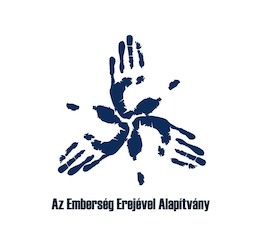Toolbox — For Training and Youth Work
All new tools in your inbox: Be the first to know about new tools for learning with our e-mail notifications.
Exercise, Group Building Activity, Boardgame
Human rights history
Bit of quiz, bit of group decision making, bit of knowledge. Human rights history can be a good starting activity in workshops, trainings, etc., to introduce human rights to participants and to become familiar with the most important theoretical basis.
Aims of the tool
The main aim of Human rights history is to introduce the topic, the thinking and important moments in the evolution of human rights. It tries to show that in different parts of the wolrd, in different religions, in different times we can find core values, like human diginity, freedom, equality, helping others, etc.
Description of the tool
Human rights history is a good introductory game in human rights educational activities. It contains the most important (in my point of view) events/thoughts/processes in the history of mankind in the aspect of human rights. From Hamurabi to Kyoto Protocol. From Moses to Muhammad. From greek democracy to labour rights. This activity can be followed by a presentation of human rights (theoretical input), or creating a living statue in small groups about a concrete human right or some cooperative group work to work up the Universal Declaration of Human Rights.
Note: there is not only one good solution for my timeline. There are some cards wich are about a longer period not for an exact date and these cards can be mixed. For me the point is not the timeline, but the thinking, of course it is important that the participnats don't mix up Martin Luther King with Martin Luther :-)
Steps:
1. Place the human rights history cards in the middle
2. Introduce the task to the group: Read all of the cards and try to create a human rights timeline (give maximum 10 minutes for that)
3. If the group is ready read out loudly the cards in the group's order. If there is a need correct the wrong parts, but remember the aim is not to prove that the participnats knowledge is little in the topic, but to wake their interest about human rights.
4. Debriefing. How do you feel about the result of the game? How did the group made decisions? Were their any new information for you on the cards? What does this activity means to you?
Tips:
Make your own cards with more topics, funnier pictures, etc. You can make small groups and compare the different solutions at the end. There is another version if you give one card to one person, you put the starting point to the middle and if somebody thinks that it is her/his turn, she/he read out the card and say an explanation why it's the next.
Available downloads:
Disclaimer
SALTO cannot be held responsible for the inappropriate use of these training tools. Always adapt training tools to your aims, context, target group and to your own skills! These tools have been used in a variety of formats and situations. Please notify SALTO should you know about the origin of or copyright on this tool.
Tool overview

http://toolbox.salto-youth.net/1427
This tool is for
13-99 yrs
and addresses
Social Inclusion, Anti-Racism, European Citizenship, Gender issues, Religion
Materials needed:
Human rights history cards
Duration:
30 minutes for the activity and debriefing
Behind the tool
The tool was created by
András Nyirati
in the context of
Human rights workshops for high school students
The tool has been experimented in
Workshop for students, festivals/youth events, youth exchange, human rights training
The tool was published to the Toolbox by
András Nyirati (on 18 October 2013)
and last modified
2 May 2013
Comments
No comments have been posted yet.
If you want to comment on this tool, you need to be signed in with your MySALTO account. Sign in now